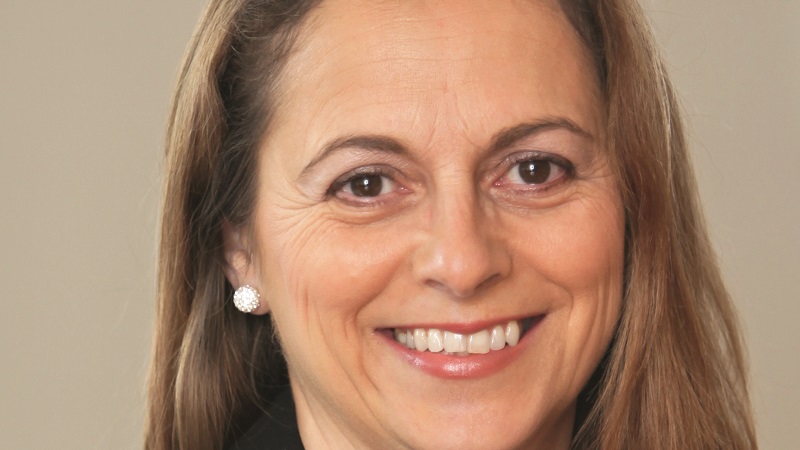Commentators are questioning whether changes in lifestyle behaviours and remote working have prompted higher than normal turnover at UK fund groups as portfolio managers re-evaluate their career paths and rethink the hassle of London life.
Since the coronavirus crisis kicked off there has been a seemingly endless wave of high profile fund manager departures.
M&G Property Portfolio manager Fiona Rowley (pictured), Invesco UK equities co-head Mark Barnett and Allianz Global Investor’s Lucy Macdonald are among the notable names to exit their respective firms in the last three months. BNY Mellon global equities manager Nick Clay and Blackrock Asian equities boss Andrew Swan have also made stunning departures over the period and landed at rival businesses.
Meanwhile Monks Investment Trust manager Charles Plowden and Marlborough Special Situations and UK Micro-Cap Growth manager Giles Hargreaves have announced they will be retiring from fund management in the coming months.
‘It really feels like we are losing more fund managers than usual’
Chelsea Financial Services managing director Darius McDermott wondered whether the unique circumstances of the Covid crisis had prompted more managers to take stock of their lives and chosen career paths.
“It really feels like we are losing more fund managers than usual at the moment,” he said in a statement following Rowley’s departure earlier this month.
“This leads me to wonder if the current situation is causing funds managers – and other professionals alike – to reassess their life goals and make changes.
“I’m sure these decisions have not been spur of the moment,” he continued, “but it wouldn’t surprise me if we see further changes – across multiple roles in the industry – throughout the course of this year and next as we return to a new normal.”
Fund managers looking for a lifestyle change
Fairview Investing consultant Ben Yearsley doesn’t think turnover at UK fund groups has been any higher during the Covid-19 pandemic than during the global financial crisis.
But unlike the previous market downturn, Covid has resulted in drastic changes to the way fund groups operate and equally big lifestyle changes for portfolio managers and other staffers.
After over three months of working from home he thinks it’s understandable that some managers have chosen retirement or a new career over the “hassle” of London working life.
“If you’ve been working at home for three months and quite enjoying it, do you really want to have to go back to working in an office?” says Yearsley. “Do you want to go back to packed commuter trains or having to take the tube into work?”
City Hive founder Bev Shah says Covid unlike any other crisis “has given many people who ordinarily wouldn’t have the time or headspace a moment to reflect on career paths”.
“Conversations with peers and recruiters that have been put off in the past are being prioritised as circumstances and goals change,” Shah says.
‘Rubbish bond rates’ and ‘wounded equity markets’ makes managing assets a harder sell
Boring Money CEO Holly Mackay thinks the pressure of managing money in a down market could also be behind the spate of fund manager departures and retirements.
“If we see markets fall later this year as the economic ugliness washes through and the central banks relax efforts – then people may decide that asset management is a much harder slog than it has been over the last decade,” she says.
“Combine rubbish bond rates with wounded equity markets and downwards pricing pressure – and it’s not surprising that many may rethink their own personal risk reward trade-offs.”
Yearsley says the hit from Covid has been especially hard for value style managers like Barnett, Neil Woodford’s protégé at Invesco who was ousted over persistent performance issues, or Alastair Mundy, who stepped back from his Ninety One portfolios for health reasons in April.
“You’ve had a 10-year bull market for growth and a 10-year bear market for value. That’s going to wear you down after a while,” says Yearsley.
Covid forcing fund groups to have ‘tough conversations’
The disruption caused by the coronavirus has also given companies and management teams time to reflect about where their businesses are heading, says AJ Bell head of active portfolios Ryan Hughes. “Sometimes that means having some pretty tough conversations.”
The active management industry was already under acute pressure prior to the arrival of Covid-19, he notes. The number of fund providers has continued shrinking thanks to persistent fee pressure from low-cost passive alternatives and many managers have struggled to raise assets and outperform.
“The more tenured in the industry have lived through many crises and know that corporate restructures are imminent, a matter of when and not if for the majority of organisations,” says Shah. “So, this might be an ideal time to consider retirement and other activities.”
Invesco has introduced sweeping changes across its UK and European equities desks in a bid to turn performance around, while Allianz GI has re-jigged its global fixed income set-up.
Jupiter which is about to finalise its acquisition of Merian next month has also announced a slew of personnel changes. it has chopped and changed more sales and investment roles, installing Warren Tonkinson as head of distribution and replacing various Merian managers including Lloyd Harris of the corporate bond team.
Just before lockdown Jupiter replaced Steve Davies with Newton manager Christopher Smith on the £958m UK Growth mandate after years of underperformance.







